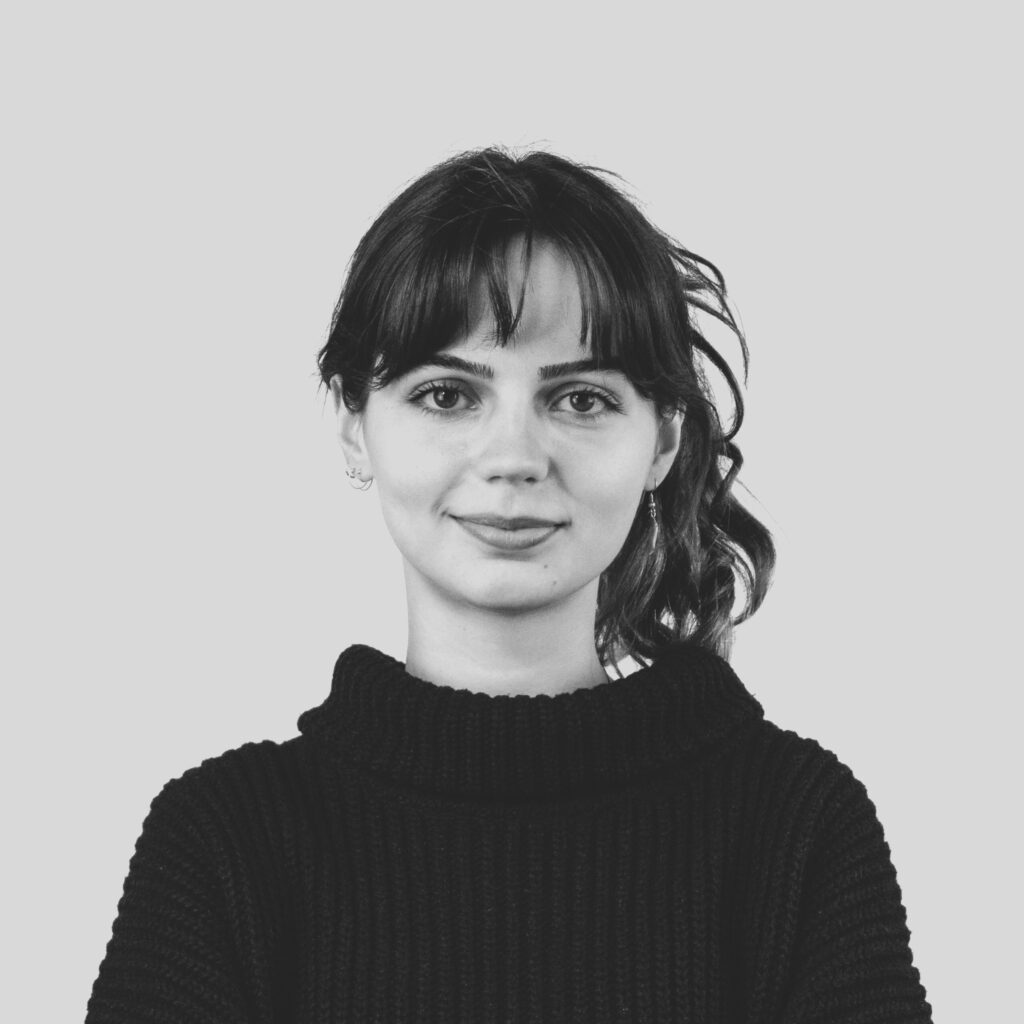
Gjiltinë Isufi (1998) is an architect and researcher from Kosovo, currently based in Belgium.
Gjiltinë completed her Bachelor’s studies in Architecture at the University of Pristina in Kosovo. During this time, she studied abroad in Germany as an Erasmus student at the Dortmund University of Applied Sciences, and later at the Dessau Institute of Architecture where she was awarded the ‘Lars Lerup Award’ for the best student project of 2019.
As a winner of the ‘Master Mind Scholarship’ awarded by the Flemish Ministry of Education and Training, Gjiltinë started her Master’s studies at KU Leuven in 2020. The following year, she was awarded a Scholarship by the Government of Kosovo as part of the top 16 Kosovar students studying at the top 50 universities in the world. In 2022, she graduated asLaureate of the Faculty of Architecture in Ghent with her master’s thesis ‘To Meet Galileo on Day Fourteen. An Eclectic Architectural Documentary: The Case of Gjilan Prison’. This project was presented at the Manifesta Biennial in Pristina and later nominated for the Young Talent Architecture Award (YTAA) as part of EU Mies Awards 2023.
Gjiltinë’s projects often explored the intersection of architecture with broader social, cultural and historical contexts. In 2021, she was invited as a speaker at the International Conference ‘Space in Philosophy’ in Pristina for her research ‘The Interior and the Self: Finding Foucault at rue de Vaugirard’. In 2023, her work ‘Never Too Far to Talk: Constructing Communities Through Drawing’ as part of ‘Negotiating Ungers: The Construction of Communities’ was exhibited in the École Nationale Supérieure d’Architecture de Saint-Étienne (ENSASE) in France.
Gjiltinë is now a PhD researcher at KU Leuven with her project ‘In Space We Read Trauma: Disclosing Microhistories in Kosovo, 1980-1999’. Through the development of a methodological framework for spatially investigating traumatic experiences, this project aims to instigate a spatial turn in Trauma Studies—a field largely marked by language-based discourses. In doing so, the project discloses (yet) undocumented micro-histories in Kosovo, essential to refocusing its history.
This project is funded by the FWO Fundamental Research Grant and is supervised by Professor Rajesh Heynickx and co-supervised by Professor Gisèle Gantois (Urban Projects, Collective Spaces and Local Identities).
